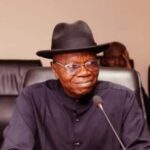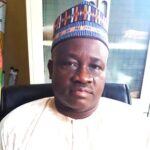Chief John Aluya (immediate past Vice President MAN)
 The African Free Continental Free Trade Agreement is already in operation. The issue or problem we have is individual countries being able to activate the protocols. There are so many things that are hindering individual countries to hold launch of the AfCFTA and it does vary from one country to the other. It’s not the same as Nigeria has, that Ghana has, that Algeria has, that Morocco has. It varies. So what the AfCFTA headquarter is doing is (I think they are busy) harmonizing all these differences so that we can see into the harmonized system. But as far as we are concerned, it’s a forgone issue. We are already in it. Going back is not an option now. AfCFTA has come to stay and we only need to learn how to live with it.
The African Free Continental Free Trade Agreement is already in operation. The issue or problem we have is individual countries being able to activate the protocols. There are so many things that are hindering individual countries to hold launch of the AfCFTA and it does vary from one country to the other. It’s not the same as Nigeria has, that Ghana has, that Algeria has, that Morocco has. It varies. So what the AfCFTA headquarter is doing is (I think they are busy) harmonizing all these differences so that we can see into the harmonized system. But as far as we are concerned, it’s a forgone issue. We are already in it. Going back is not an option now. AfCFTA has come to stay and we only need to learn how to live with it.
Dr. Muda Yusuf (Founder/CEO, CPPE)
 Well, I think we need to do something quickly about it, because as the biggest economy on the continent, we should not be seen to be lagging behind. I also understand that even the agreement is yet to be domesticated. It has not been considered by the National Assembly and I understand that is also a very important condition because the agreement must be legally recognized by our country through the legislature. So the domestication of the agreement is also another issue. That has not been done by the National Assembly and you need that type of authority of the legislature to say that yes, the whole country is on board. And whatever agreement we have committed to, the thing will be binding on us as a nation.
Well, I think we need to do something quickly about it, because as the biggest economy on the continent, we should not be seen to be lagging behind. I also understand that even the agreement is yet to be domesticated. It has not been considered by the National Assembly and I understand that is also a very important condition because the agreement must be legally recognized by our country through the legislature. So the domestication of the agreement is also another issue. That has not been done by the National Assembly and you need that type of authority of the legislature to say that yes, the whole country is on board. And whatever agreement we have committed to, the thing will be binding on us as a nation.
Pius Ujubonu (ANLCA Chieftain)
 You know, one thing is to get involved in a multilateral agreement. Another thing is your readiness and willingness to analyse the immediate, middle and long term effects of signing off membership of such a multilateral agreement. The delay, as far as I’m concerned, is a calculated delay and in my own opinion, I agree with that delay. It’s better to look before you leap than leaping before you look. This is my own opinion. I’m not saying it’s not a good initiative. But you have to be sure because there are so many other international multilateral agreements that we went to sign but we couldn’t meet up with them.
You know, one thing is to get involved in a multilateral agreement. Another thing is your readiness and willingness to analyse the immediate, middle and long term effects of signing off membership of such a multilateral agreement. The delay, as far as I’m concerned, is a calculated delay and in my own opinion, I agree with that delay. It’s better to look before you leap than leaping before you look. This is my own opinion. I’m not saying it’s not a good initiative. But you have to be sure because there are so many other international multilateral agreements that we went to sign but we couldn’t meet up with them.
Mr. Rilwan Bello (Vice President, NAMTOP)
 We know one of our major problems in Nigeria is our government’s commitment to actually foster trade and investment. Now, I will give you an example of this Minister of Interior. Look at his achievements just within the space of time. It doesn’t take us anything to implement the AfCFTA. But the problem is just simple, which is the un-seriousness of the government. It is just that simple because, by now, why do we have other African countries keying into it and we that we are the giants of Africa by population and by trade is yet to.
We know one of our major problems in Nigeria is our government’s commitment to actually foster trade and investment. Now, I will give you an example of this Minister of Interior. Look at his achievements just within the space of time. It doesn’t take us anything to implement the AfCFTA. But the problem is just simple, which is the un-seriousness of the government. It is just that simple because, by now, why do we have other African countries keying into it and we that we are the giants of Africa by population and by trade is yet to.
Francis Omotosho (Registrar, NAGAFF Academy)
 The National Action Committee is talking is story. Nigeria is not ready for AfCFTA because of the barriers. Nigeria is not ready to remove the trade barrier and non-trade barrier. So, we cannot really join forces with other African countries. The truth of the matter, is that agencies like Customs is not ready to remove all the trade barriers, reduce tariffs and all the rest. Even if you give AfCFTA till 2030, Nigeria will never be ready until they change their constitution. Look at other African countries and see the concept of their trade system. So, I don’t think Nigeria is ready for that. Forget about the AfCFTA secretariat and all that. So, it’s even better to tell AfCFTA secretariat in Ghana that we are not ready, that we are pulling out, then let’s begin our own thing, the way they want to do it.
The National Action Committee is talking is story. Nigeria is not ready for AfCFTA because of the barriers. Nigeria is not ready to remove the trade barrier and non-trade barrier. So, we cannot really join forces with other African countries. The truth of the matter, is that agencies like Customs is not ready to remove all the trade barriers, reduce tariffs and all the rest. Even if you give AfCFTA till 2030, Nigeria will never be ready until they change their constitution. Look at other African countries and see the concept of their trade system. So, I don’t think Nigeria is ready for that. Forget about the AfCFTA secretariat and all that. So, it’s even better to tell AfCFTA secretariat in Ghana that we are not ready, that we are pulling out, then let’s begin our own thing, the way they want to do it.
Aloga Ogbogo (NARTO Chieftain)
 You see, we are talking about African Continental Free Trade Agreement, but does Nigeria as a country have what it takes to actively get involved in that? Do we have the roads that will move cargo from the hinterland? Are the extensions around the corridors been addressed? We are talking of an agreement at the regional level when we have our own peculiar problems at home here. I’m not a part of that. Let’s address the issues and problems we have here within our corridors. We all need to look at aggregate levels and issues. Of course, if we have to participate fully in this African Continental Free Trade Agreement, we have a portion and quarter of the trade that we have to contribute. And of course, Lagos is a port area; these cargoes are going to be moved from the hinterland. Are the infrastructures to move these things in place? I mean, these are the issues, and they are very critical.
You see, we are talking about African Continental Free Trade Agreement, but does Nigeria as a country have what it takes to actively get involved in that? Do we have the roads that will move cargo from the hinterland? Are the extensions around the corridors been addressed? We are talking of an agreement at the regional level when we have our own peculiar problems at home here. I’m not a part of that. Let’s address the issues and problems we have here within our corridors. We all need to look at aggregate levels and issues. Of course, if we have to participate fully in this African Continental Free Trade Agreement, we have a portion and quarter of the trade that we have to contribute. And of course, Lagos is a port area; these cargoes are going to be moved from the hinterland. Are the infrastructures to move these things in place? I mean, these are the issues, and they are very critical.
David Etim (Deputy President, Calabar Chamber of CIMA)
 It is not that Nigeria is foot-dragging. There is a lot of work to be done before you continue to do things. So in terms of value addition which is really what AfCFTA is about, Nigeria has the opportunity of becoming a major stakeholder in African trade. But we also have to put our house in order and putting our house in order requires a lot of things which include physical infrastructures and invisible infrastructure. These are all the factors militating against Nigeria taking full advantage of the situation. It is not a web of activities. A lot of things have to happen the right way.
It is not that Nigeria is foot-dragging. There is a lot of work to be done before you continue to do things. So in terms of value addition which is really what AfCFTA is about, Nigeria has the opportunity of becoming a major stakeholder in African trade. But we also have to put our house in order and putting our house in order requires a lot of things which include physical infrastructures and invisible infrastructure. These are all the factors militating against Nigeria taking full advantage of the situation. It is not a web of activities. A lot of things have to happen the right way.














